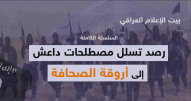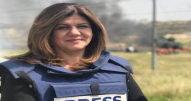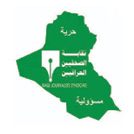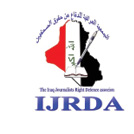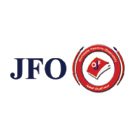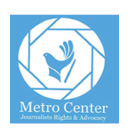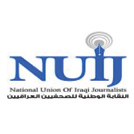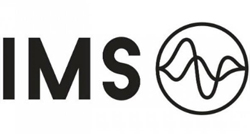Two Years after the End of the War: Liberated Cities... Surface Coverage Neglected Dozens of Human Stories
الصفحة الرئيسية > تقارير الرصد الإعلامي > Two Years after the End...

In its 41st report, the Iraqi Media House monitors media coverage of the problems and crises of cities occupied by ISIS (Nineveh, Anbar, Salah al-Din) and the challenges they face two years after regaining control of them, and how the press coverage of those cities declined despite the increase of problems, crises and human stories hidden from public opinion due to the monotonous coverage and superficiality in addition to the absence of investigative coverage.
The report deals with monitoring the number and quality of local media coverage of the three governorates by analyzing the coverage and identifying the stories that have focused on them and neglected others. In addition to the crises facing these cities and their inhabitants through tracking the coverage and polling opinion of journalists and media professionals working inside them.
The new monitoring report is an update of the 38th monitoring report: "The Liberated Cities: Superficial Coverage without Investigative Reports. The Authorities’ Actions Make the Journalists' Task Difficult", which is within the context of the interest of "Iraqi Media House" to monitor and follow the developments and changes in the liberated cities to reach the results that address the problems These cities face on the one hand and their impact on the Iraqi situation as a whole on the other, while the media remains the main player in presenting these problems to local and international public opinion or not.
The report includes monitoring of more than 30 media outlets ranging from television channels, agencies, news sites, and newspapers. It focuses on the counting of news content, types and method of how media channels deal with each governorate and then analyzing and comparing it with the comprehensive news content of the media on the one hand, and assessing this coverage with the size of the problems facing these cities on the other hand.
The report records that the quality and the sobriety of the media coverage witnessed a marked decline two years after the end of the battles towards superficial coverage of official data only, and compensate for the acute lack of investigative reports by relying on the Western media to cover stories and investigative reports that affect humanitarian and social issues, and another political issues linked to administrative and financial corruption.
Two years after the liberation of the three cities, the monitoring report concludes that crises related to the displaced, civil peace, how to deal with thousands of ISIS families, reconstruction and the emergence of frightening unemployment among the able-bodied population, especially the young, are serious challenges that require urgent action to begin to address before aggravating the situation towards dangerous scenarios.
The monitoring report reached the following conclusions:
1- For the first time since the recapture of Nineveh, Salah al-Din and Anbar, journalists, and media workers have unanimously agreed that their security concerns during work are accompanied by more restrictions on journalistic work in these cities. Often, a small story requires the approval of two or more official and security agencies. And armed groups have become increasingly intimidating journalists and media workers with the almost complete absence of unions and specialized bodies in the affairs of journalists in these cities which is left journalists and media professionals alone in facing their difficulties in coverage.
2- Media coverage has become superficial, relying mainly on official statements, with the decline in the production of private and exclusive stories dealing with many important issues, while social media ensure that these issues are conveyed to the public in a non-professional manner, which is reflected in the weakness of official and local interaction.
3- The media continues to curtail its media cadres in these cities, leaving dozens of journalists and media workers who had a role in covering events in these cities during the control of "ISIS" and later in the battles fought by the Iraqi security forces to liberate these cities without work, while many of them were forced to Leave journalistic work and use their personal accounts on social media to cover events on an individual basis.
4- Political differences in the three liberated cities have reached high levels since the fighting ended, and the media owned by the political parties became the main tools of these differences to produce distorted coverage based on the fall and exchange of accusations. As a result, the professional coverage of the displacement, destruction and economic and social problems of cities and their populations has declined.
5- The monotonous coverage and contradiction with the absence of accurate figures and statistics on the problems of these cities, where statistics on unemployment and the extent of destruction and living and health needs are conflicting among officials within each province, in addition to the absence of investigation investigations based on accurate figures and statistics, and the officials are trying to either hide them or amplify them for reasons related to competition and political conflict. Make the international community reluctant to take steps to help those cities.
6- The decline of press cadres in these cities and the increasing restrictions imposed on journalists, led to the absence of dozens of stories about the media, some of which are linked to serious problems related to security and community peace and the press situation, while the large local media use foreign media coverage about these cities and the translation of reports and articles without Follow-up of the issues addressed in the field.
Recommendations:
1- The media should give the cities of Nineveh, Anbar and Salah al-Din coverage that is commensurate with their news merit and the problems they face by avoiding almost total reliance on the views and positions of officials and politicians who make dozens of statements a day without the existence of press scrutiny. In addition to work on field coverage focused on the population and rely on statistics and official local data issued by government bodies such as the Ministry of Planning, and international and international organizations working in these cities in full coordination with the Iraqi government.
2- Follow-up stories and reports covering the problems and challenges of these cities such as displaced people, destruction, security concerns and service and health problems. Rather than reviewing a major one-time problem, the problem should be followed up and pursued, contributing to the responsibility of the parties to solve it or minimize its impact.
3- Local and international organizations such as trade unions and concerned bodies should represent and support journalists and provide immediate assistance to journalists working in these cities by opening offices or focal points, communicating with journalists and providing full moral support and legal and security protection. In addition to providing them with contacts in case they are in danger and opening channels of communication with government and international agencies to achieve this, in addition to the preparation of programs and workshops to train and qualify young people who want to work in the press in these cities and encourage them to spread the culture of news neutrality through the media or through sites Social media, where a large part of the media coverage during the control of "IS" on these cities and then based on bloggers who were inside these cities to obtain accurate information.




